
This is the Second Part of a series consisting of 5 publications on the history of Venezuela. Currently this country is experiencing the worst crisis that Western society has known, hyperinflation, shortage of basic supplies, humanitarian crisis, violation of human rights, systematic violation of the rule of law, the highest rates of violent crime, crime, systematic corruption within institutions, indebtedness, unemployment, protests, repression, concentration of power, social division, the return of diseases that had been eradicated, malnutrition, high rates of infant mortality, cultural degradation, massive migration, in short, Venezuela suffers , in a high degree, of all social ills.
Index
1-Dictatorship of Juan Vicente Gómez, Start of the Oil Industry and Cradle of Marxism
2-Rómulo Betancourt vs Marcos Pérez Jiménez
3-Puntofijismo: Rise and Fall of the 4th Republic
4-Hugo Chávez and the Socialist Revolution of the 21st Century
5-Government of Nicolás Maduro
Rómulo Betancourt vs Marcos Pérez Jiménez
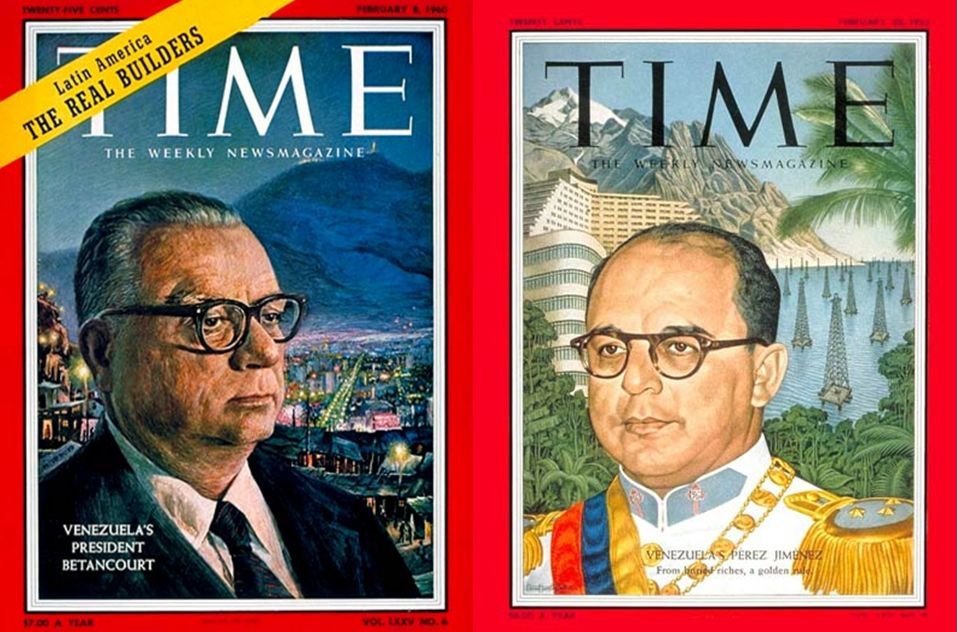
October 19, 1945 ...
As a result of a military insurrection, a de facto government was established, with the name of revolutionary junta of government, which was composed of five civilians and two military officers and presided over by Rómulo Betancourt.
I will tell you that his appearance in Venezuelan politics began in 1928, participating as a student leader, leading together with other young people the first popular demonstration against the dictatorship of Juan Vicente Gómez.
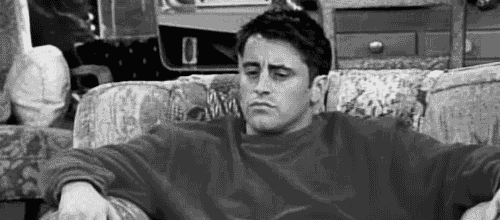
As we know, the protest ended with the imprisonment of Betancourt and the group of university leaders, although Betancourt's stay in prison would be very short, just a few days, due to the demands of citizens who demanded the release of students. Once released, he participated again in another insurrectional movement, which resulted in the closure of the Central University of Venezuela, police persecution and the exile of opponents. Later he remained in hiding for a few months, then escaped to the island of Curaçao, where he devoted much of his time to the study of socialist thought, and decided to join the Democratic Revolutionary Party, a radical left Marxist organization, although it would not last long time, because he was branded as a communist, thus having to separate from the party.
In 1929 he visited Colombia, Costa Rica, Panama, the Dominican Republic and Trinidad in search of forming a conspiracy coalition of armed invasions with the old military in exile to overthrow the Gómez. dictatorship, as well as seeking economic financing in those countries.
Wikipedia
After the failure of the insurrectional movement, he travels to Costa Rica and Colombia, where he participates in the creation of the Unionist Alliance of Gran Colombia. Then he travels to Peru and Bolivia where he strengthens ties with the Aprista Party, which was of a socialist nature. Later he traveled to Costa Rica and became a professor at the Popular University, and joined the Costa Rican Communist Party, becoming the editor of the party newspaper, finally returning to Venezuela in January 1936 after the death of dictator Juan Vicente Gómez.

It would quickly include the Venezuelan political life, would be exiled again, this time in Chile, to return to Venezuela again, organize and conspire to take power in the Communist style, through a coup d'état, by force and with the support of a military clique.
When taking control of the government established a Constituent Assembly to form a new Constitutional Charter, and due to the reform that was made in the oil industry years ago, could raise the tax in successive years to 20%, then 28% and finally to 50%, this increase in taxes and because the production was in 500 million barrels of oil per year, generated a bonanza greater than any previous government had had. Finally and after popular election, Betancourt handed power to his party partner, Rómulo Gallegos, to assume the General Secretariat of the Democratic Action party.
The government of Gallegos would only last eight weeks, since the military high command would force it into exile, thus constituting a military junta, which was exclusively formed by the military that helped them to reach power in 1945.
From 1945, in Venezuela would govern the Military Junta of Government, formed by Marcos Pérez Jiménez, Luis Felipe Llovera Páez and Carlos Delgado Chalbaud, who would govern the nation until the assassination of President Chalbaud, in 1950. Later, Germán Suárez Flamerich would take power, a civilian, which in practice, would be a puppet of Marcos Pérez Jiménez until 1952, year in which the latter is appointed president.
Under the "New National Ideal" program, Pérez Jiménez promoted the immigration of foreign capital and people, mainly European communities such as Spanish, Italian and Portuguese among others. It also promoted the most ambitious infrastructure program for its time, based on the policy of reinforced concrete, with the construction of buildings, large and modern roads that linked the states and cities of the country, bridges and large-scale works, with the that for the first time, the country was modernized.
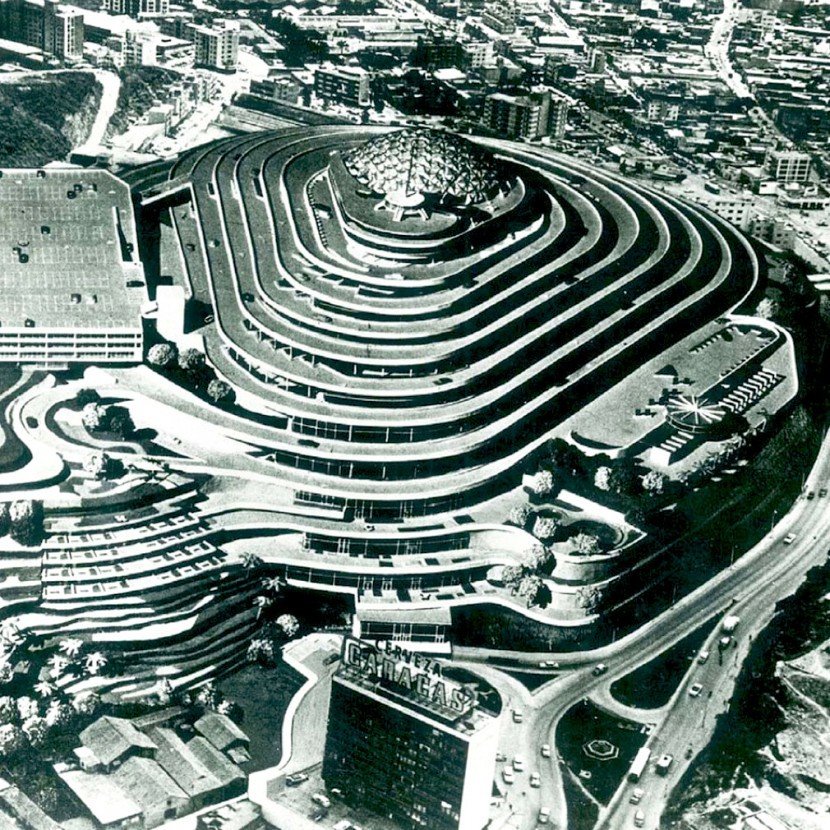
The country would reach its peak during this time, the works generated a lot of good jobs for the entire population, remaining under construction twenty-four hours a day, until the prisoners would be put to work in large works.
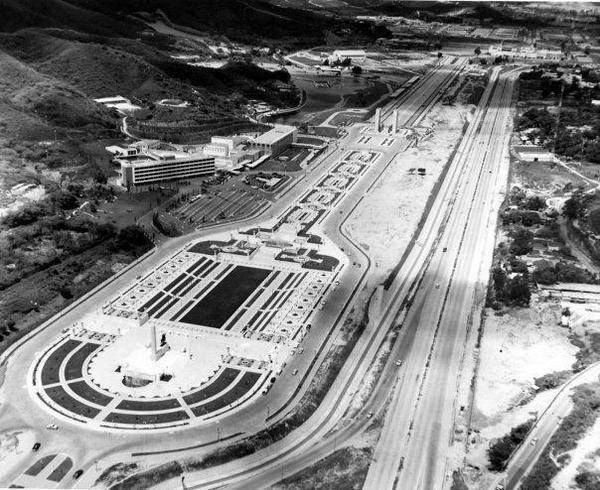
It can be said that immigration during this period should have reached 800,000 people.
During the government of Pérez Jiménez, with the aim of enriching culture and increasing technical knowledge, in addition to populating a country that is practically empty considering its size, Venezuela would provide opportunities for many Europeans fleeing a Europe in crisis as a result of the Second World War.
In the course of this governmental management, the attraction of European immigrants towards the nation is deepened, through the state policy of "open doors" and the enactment of the Naturalization Law (1955), which allowed thousands of foreigners to enter the country. The country, motivated by two fundamental reasons: one, the high growth of the national economy determined by high oil revenues; two, due to the scarcity of opportunities in their homelands of origin. From the State, the arrival of large numbers of Italians, Spaniards, Portuguese, among others, was encouraged, with the vision of incorporating them in the process of modernization and industrialization of Venezuela, responding to the Nation project, of order and progress, associated with the technical knowledge, stability and cultural development contributed by European immigrants.
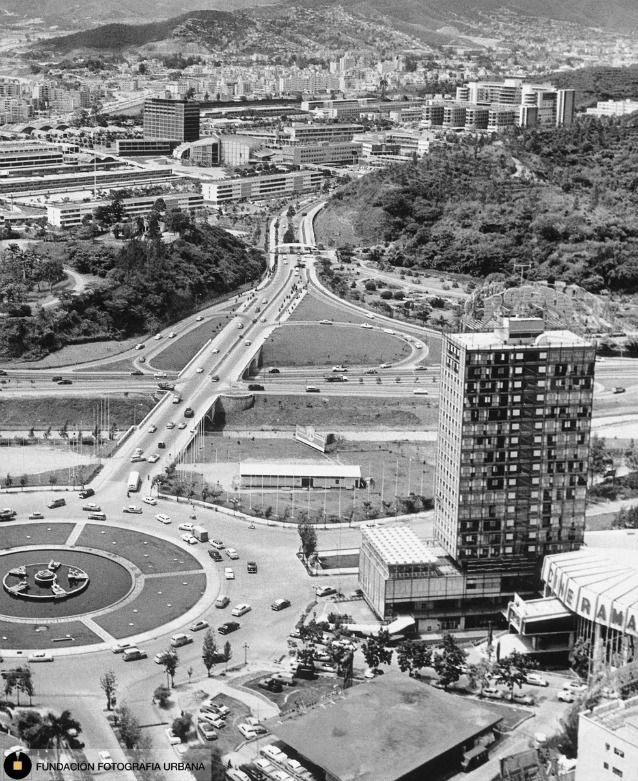
With a good immigration and colonization plan, Venezuela could, then, populate its desert territories and incorporate them into national life; diversify its agriculture; develop new industries and improve existing ones; contribute to the improvement of their race and to the leveling of their culture, especially in the domain of the West; extraordinarily accelerate its economic and social development; finally, to integrate its human elements into a national type that perpetuates the integrity of the Homeland.
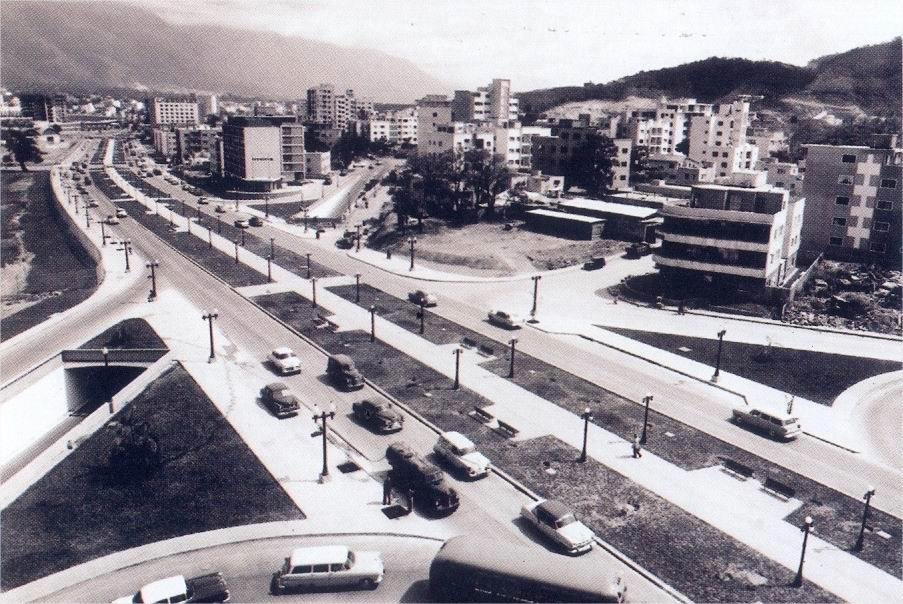
In the first place, we can not speak of a true open-door policy, in the literal sense of the word, since the Venezuelan State always favored European immigration exclusively, projected the entrance to the nation of population of Canarian, Italian, Portuguese origin and Spanish, mainly, and then the rest of Europe. This is logical, because the Venezuelan population is the result of a deep process of miscegenation between Europeans and aborigines, in addition a significant percentage of the population of Venezuela, over 30%, is of European origin and occupies relevant political and economic positions, which explains why the interest of the various administrations to attract populations of European origin. Coupled with the above, Venezuelan culture has been strongly influenced by Western European culture since the colonial era, this added to the common characteristic aspects such as the Catholic religion, the language of Latin origin, the idealization of the white or light complexion , among others, it verifies the actions of why to bring European population and not of any other procedure.
This was how Venezuela allowed the entry of European migration, acquired a large workforce largely with technical knowledge not developed in the region, which allowed the nation to integrate work life to a mass of professional workers almost without any cost in educational or labor training, in short, Europeans arrived trained and ready to take advantage of the opportunities of all kinds offered by the nation at that time. Venezuela would become the main port of arrival of Europeans during that period.
All this migration, in my opinion, would cause a huge culture shock, since they would face two different types of cultures, the Europeans represented an economic and cultural enrichment for the government, however, these would come to compete with the descendants of Europeans who already they were in positions of influence in the nation, as well as generating a strong division among the people of the lower classes, represented by the people with the highest degree of indigenous descent, such as the mulattoes. From here the social and economic division would be accentuated, since as I said before, Venezuela would become a very rich but unequal nation.
During this time the business class is strengthened, forming a large number of different monopolies that dominate cement factories, financial companies, developers, insurance and capitalization, packaging, concrete, construction, breweries, money and securities; electricity, production and distribution of sugarcane; liquors, rubbers, import, banks, press, radio and television, among others. During the government of Pérez Jiménez Venezuela has its best economic period.
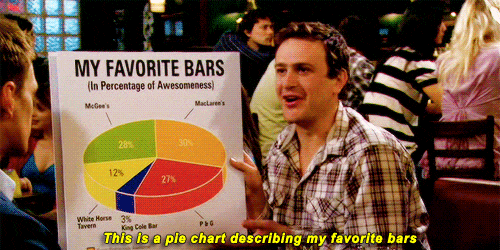
Oil production in millions of barrels per day.

Gross domestic product in millions of bolivars (national currency).


As we can see in the graphs during Pérez Jiménez's government not only did inflation always remain below 2%, but there were also deflations twice, which increased the purchasing power of Venezuelans considerably. It can also be seen how oil production increased from 1,700,000 barrels per day to almost 2,800,000 barrels per day, in the same way the gross domestic product would maintain a year-on-year growth of more than 10%. Venezuela would be the second economy of the entire American continent, only surpassed by the United States, and the fifth worldwide.

In the following video is superficially shown as was Venezuela during the time of Pérez Jiménez portrayed by an advertisement that the oil company CREOLE performed, here a US citizen will make a tour of several places in the country. It is not necessary to watch the video to continue reading.
Other videos of the time, much shorter:
During the government of Pérez Jiménez in Venezuela, crime was also eradicated, and all types of crime, from the organized to the lowest delinquents.
Here is a video from a couple of years ago, in which a journalist asks people about the government of Pérez Jiménez. (The video is in Spanish, but below I will leave the answers of the people interviewed)
This was the statement of the first interviewee, who said that it was not possible to steal more than once, because at the first attempt, he you would pay for it, and he would not try to repeat it again:
"When the government of Pérez Jiménez, for me, was the best government, because when you robbed, you stole only once, and when you killed too ... you went to jail."
"They were the ones who made these buildings, the first highways, (referring to the prisoners) and from there they left with a profession"
"A good man, he had a big heart." (Referring to Pérez Jiménez)
Other statements were:
"He was a dictator, well, how is a dictator, a cruel element, a repressive element ....... (the interviewee added later) ... yes, he had a good thing, there were no criminals . "
"what can be recognized is that he did great works .......... a thing that no government has done"
"I lived the era of Marcos Pérez Jiménez, and in that there was security everywhere, I was quite young, a teenager, I enjoyed that time, as I believe, we will not have an equal time, and the vast majority of constructions that today you see here in Caracas are the ones he built. "
"I hope he will come back"
"There was security, there was respect, there was authority, the second, from Europe, they were welcome, that's why the works were made by Italians, Portuguese and Spaniards, those people, because from the south he do not want anyone."
"How was the government? There were no thieves, the one who stole once did not steal twice ........ There was a lot of security, you could fall asleep in that bank with your wallet that no one was going touch you."
"The one who said something, if he had a policeman next to him, was imprisoned ... or they sat him on a block of ice ........ that was the medicine he gave to people they considered to be an enemy of the regime."
The government of Pérez Jiménez would be repressive with anyone who wanted to do politics contrary to the regime, however, Venezuela and its people would enjoy the greatest progress ever achieved in many aspects, reaching an agreement during this time with President Eisenhower of the United States for Venezuela to build what would be the first nuclear reactor in all of Latin America, this because its government was supported by the United States, which saw in Pérez Jiménez not only a fundamental piece within the global framework of the production and distribution of oil, but also in the fight against the expansion of communism.
The repression of Pérez Jiménez was based mainly on apprehending the criminals, the corrupt and the Marxist politicians, the latter, due to the circumstances, they again took clandestine, insurgent and destabilizing methods of struggle.
In 1957 the constitutional period of Pérez Jiménez ended, however, he proposed to hold a plebiscite with the aim of consulting people if they approved a re-election of his government for the period 1958-1963.
The opposition to his government, alleging that the plebiscite lacked legal character, and that everything was previously arranged, calls on the population not to participate in what they considered a "rigged and contrary to the Constitution" election. However, and according to the official data of the electoral body, the population approved by majority the continuity of the government. No party or opposition organization recognized the results.
Source
The result of the plebiscite approved the re-election of Pérez Jiménez with 86.7% of the votes, which personally does not seem at all strange considering the good times that the country was living. However, Pérez Jiménez would not achieve his goal of governing during that period, because on January 23, 1958 a coup led by a clique of military high command and by the Patriotic Junta, which was an association of political parties between those that stood out mainly, Democratic Action (party of Rómulo Betancourt), COPEI, party of social christian ideology, and of course, the Communist Party of Venezuela.
During this part of the story, all the young students who had converted to Marxism during the struggle against the Gómez dictatorship would enter into action, would give a coup d'etat, breaking with the constitution and the new democracy that was being built. In the hands of Rómulo Betancourt, a communist with international influence, Democratic Action would be founded, a party that, as we will see in the third part, will take the reins of the country. Pérez Jiménez helped the "Adecos" (activists of the Action Democratic Party) to come to power, however, by noticing the social perpetrations of which they were capable, of their manipulation of the people, of the vague and shabby way of doing politics, decided, accompanied by the military high command, led by Carlos Delgado Chalbaud, to give a new coup d'etat. After a few years, and after the death of Chalbaud, Pérez Jiménez would take over the nation and turn it into a "dream ship" as Times magazine would say on the cover that he dedicated to the Venezuelan president, a project of a society quasi-utopian that would bring with it large numbers of emigrants from Europe, the strengthening of the economy, the eradication of crime, and large infrastructure works. The economy of the Pérez Jiménez period should not be understood as a Keynesian economy, because although much of the economy was marching due to public spending, it never went into debt or caused high inflation rates, since all the expenditure was covered by the good administration of the funds acquired from the oil rent, as well as the state expenditures were directed to modernize a nation that was very backward, said public works would be what Adam Smith or Milton Friedman would classify as; those works of such magnitude and cost that can not have a favorable economic return for a private individual, but that nevertheless must be done because they represent a very high and necessary social benefit. It was not enough that the government of Pérez Jiménez will generate social stability, authority and a solid and productive economy, since the Marxists, who were experts in the clandestine struggle, would be responsible for revenge for the betrayal that meant for them the coup d'état of 1948, in such a way that although Wolfgang Larrazabal and Edgar Sanabria would take the presidency transitorily after the fall of Pérez Jiménez in the year 1958, it would be Rómulo Betancourt who would govern the country from 1959.





